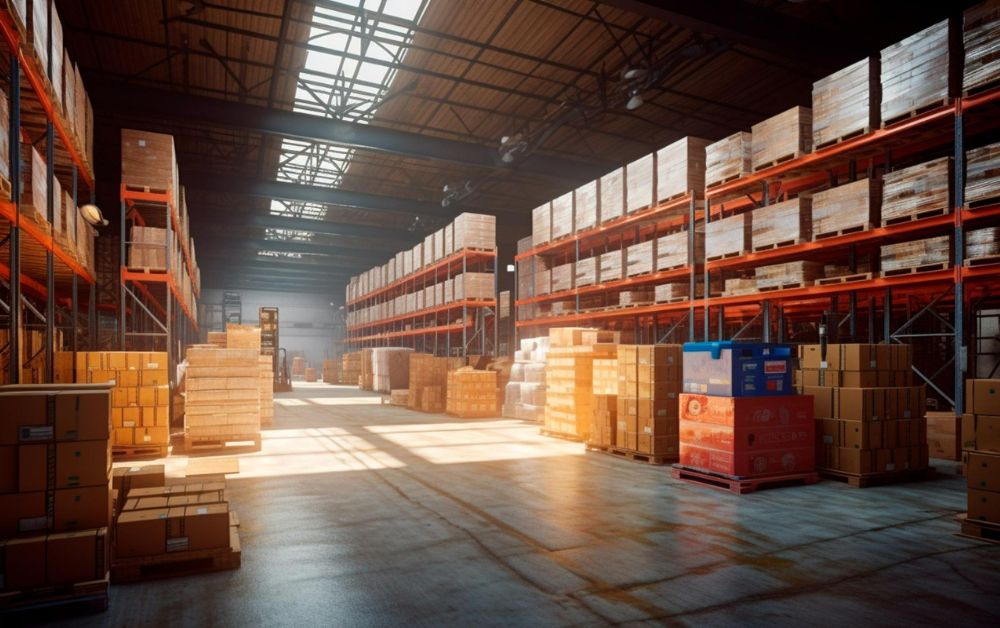Warehouses play a pivotal role in the supply chain, serving as crucial hubs for the storage and distribution of goods. In the bustling metropolis of Delhi, navigating through regulations is essential for warehouse operators to ensure seamless operations. This guide aims to shed light on the regulatory landscape in Delhi, providing warehouse managers and operators with valuable insights.
Warehouses and logistics facilities in Delhi face a complex regulatory landscape spanning multiple aspects of operations. Environmental rules cover construction permits, waste disposal, water usage limits while local municipal bye-laws dictate location constraints. Stringent fire safety norms are prescribed for storage infrastructure. For workforce welfare, minimum wage fixations, social security and safety guidelines come into play.
Goods movement faces permits and waybills under transportation laws. Tax regimes surrounding transactions, inventory valuation have reporting necessities. Customs procedures direct cargo storage and security compliance for imported goods. Data privacy protections are also emerging for warehouses adopting new technology tools.
Navigating this multidimensional regulation maze can be highly challenging especially for small operators. However, non-compliance poses serious business continuity threats through penalties and license suspensions. This blog aims to demystify key warehouse-applicable norms at central, state and municipal levels thereby helping logistics players incorporate compliance as an integral operational element. Global best practices around self-audits and checks-and-balances additionally suggested for smooth regulatory adherence combined with sustainable long-term growth.
Understanding Delhi’s Regulatory Framework
1. Licensing and Permits
Navigating the intricate process of obtaining licenses and permits is the cornerstone of warehouse compliance. To kick start operations, warehouses in Delhi must secure the necessary licenses from local authorities. This section delves into the types of licenses required, the application process, and the significance of compliance.
2. Environmental Compliance
As environmental concerns take center stage, warehouses must adhere to strict regulations to minimize their ecological footprint. This subsection explores the environmental compliance requirements for warehouses in Delhi, including waste management and emissions control.
3. Safety Standards
Ensuring a safe working environment is paramount for warehouses. This section outlines the safety standards prescribed by Delhi’s regulatory bodies, covering aspects such as fire safety, emergency response protocols, and employee training.
Taxation and Financial Compliance
4. Goods and Services Tax (GST)
Warehouses are subject to the Goods and Services Tax, a pivotal aspect of financial compliance. Delving into the nuances of GST, this section elucidates how warehouses can navigate tax obligations while maximizing operational efficiency.
5. Income Tax
Understanding the income tax implications for warehouses is essential for financial planning. This subsection provides a comprehensive overview of income tax regulations applicable to warehouses in Delhi, offering insights into deductions and exemptions.
6. Customs Duty
For warehouses involved in international trade, navigating customs duties is crucial. This segment breaks down the intricacies of customs duty in Delhi, guiding warehouse operators through the documentation and compliance processes.
Employee Management and Labor Laws
7. Employment Contracts and Regulations
Warehouse operators need to establish robust employment contracts to ensure a harmonious work environment. This section details the key elements of employment contracts, highlighting Delhi’s labor laws and regulations.
8. Health and Safety of Workers
Employee well-being is a top priority. This subsection outlines the health and safety regulations that warehouses must adhere to, emphasizing the importance of a proactive approach to employee welfare.
9. Working Hours and Overtime
Navigating working hours and overtime regulations is essential for warehouse managers. This segment provides clarity on Delhi’s labor laws concerning working hours, overtime compensation, and the rights of workers.
Technology Integration and Data Security
10. Warehouse Technology Compliance
In the era of digitization, warehouses must leverage technology while ensuring compliance. This section explores the integration of technologies such as warehouse management systems (WMS) and radio-frequency identification (RFID), highlighting the benefits and regulatory considerations.
11. Data Security and Privacy
As warehouses handle sensitive data, ensuring robust data security is non-negotiable. This subsection elucidates Delhi’s regulations on data security and privacy, guiding warehouse operators on safeguarding confidential information.
12. Cybersecurity Measures
With the increasing threat of cyber-attacks, warehouses must implement cybersecurity measures. This segment outlines the cybersecurity protocols that warehouses should adopt to protect their operations and data.
Conclusion
In the dynamic landscape of warehouse operations in Delhi, navigating regulations is a continuous process. This guide serves as a compass, providing warehouse operators with a comprehensive understanding of the multifaceted regulatory framework. By adhering to licensing requirements, financial compliance, labor laws, and embracing technology responsibly, warehouses can thrive in Delhi’s competitive environment. Stay informed, stay compliant, and pave the way for a successful warehouse operation in the heart of India.










